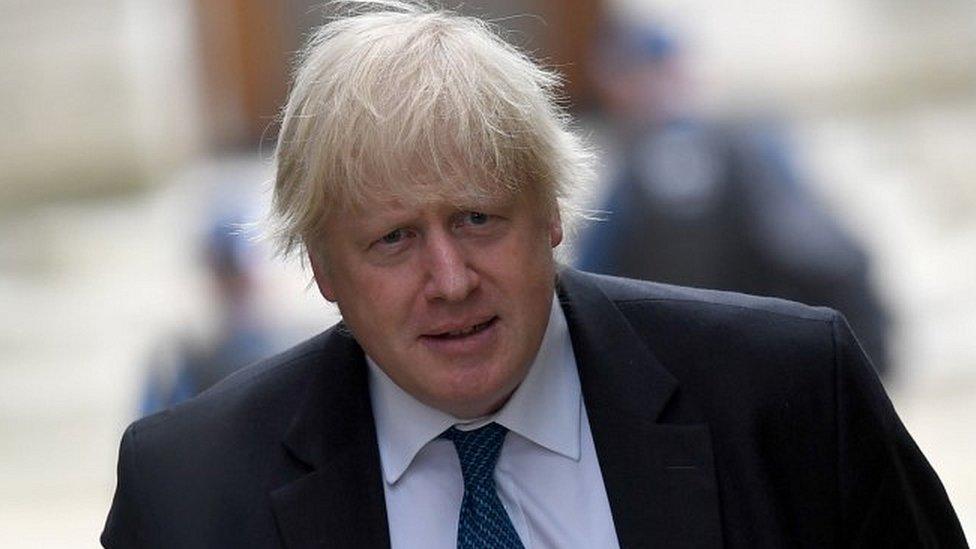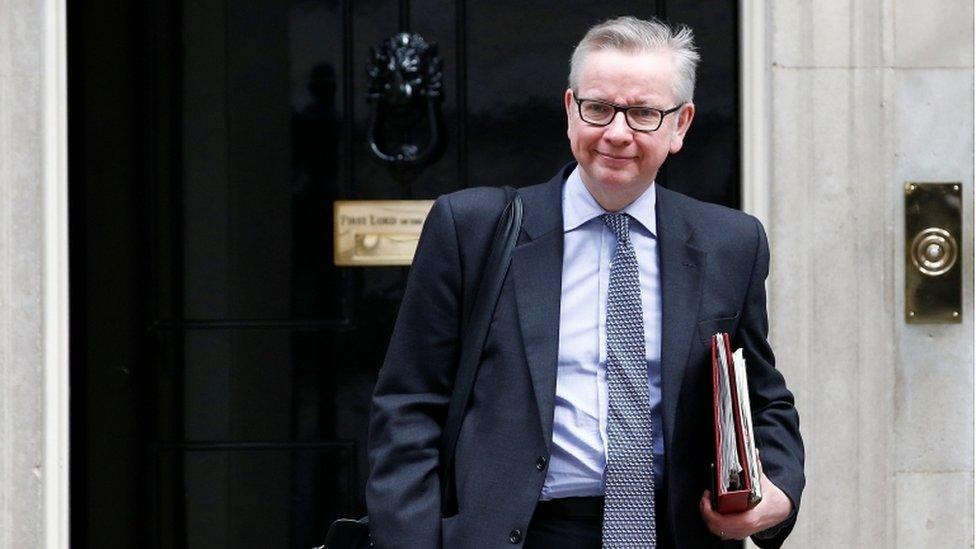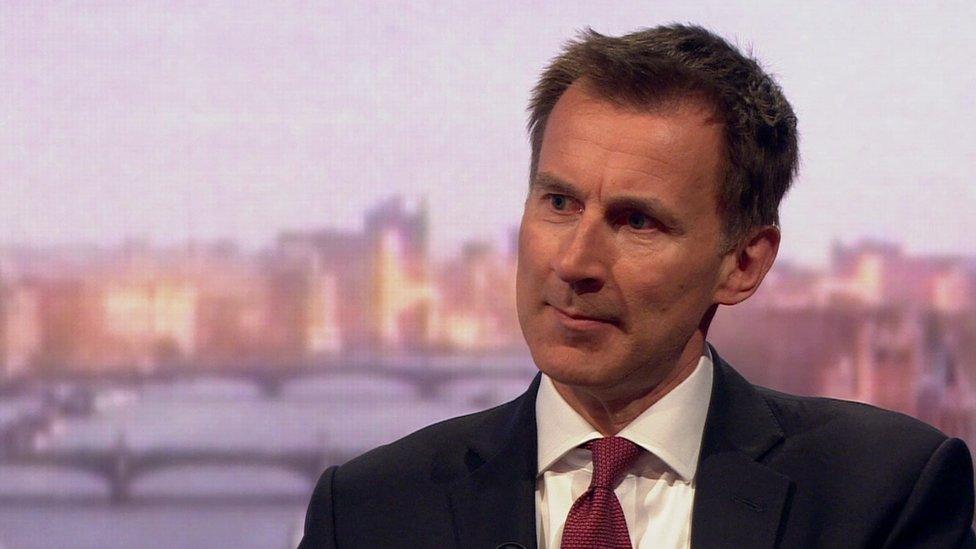Conservative leadership race: outrunning the lion
- Published

I would run if I were you
There is a tale told of two guys who are running away from a lion. OK, stick with me. I think it has some vague salience for the Conservative leadership contest.
Anyway, back to the anxious pair fleeing from the King of the Jungle. One yells breathlessly to the other: "What do you think, do you reckon you can outrun that lion?"
His rival gasps: "I don't need to outrun the lion. I just need to run faster than you."
And the Tory connection? We are at an early stage of the contest. The contenders don't yet need to display their talents to a wider audience. They just need to outrun their colleagues, to stay in the race.
Why? Because, right now, the various contenders are vying for nominations from their fellow Conservative MPs. A nervous, even frightened, grouping who want to hear talk of certainty, of uplift.
Only two survivors from this early race will win through to appeal to the Conservative Party membership as a whole.
That is, presumably, why Boris Johnson is saying little in public, other than through his customary conduit, The Daily Telegraph.

Boris Johnson has run a low-key campaign thus far
Mr Johnson is working assiduously - and discreetly - to convince his Westminster colleagues that he has the grit, the determination and, yes, the character to lead them back from the brink of oblivion.
But remember the opening tale. The winning candidates don't need, at this stage, to do battle with the external threat, the roaring lion of public disapproval. Right now, they need to outpace and, perhaps, do down their own internal rivals, their erstwhile chums and colleagues.
Never was Churchill's dictum more true: that, in parliament, the opposition sit opposite while the enemy frequently sit behind you.
That rivalry explains why, on this first day of formal campaigning, there has emerged at least one substantive policy argument between two leading contenders.

Michael Gove has been talking about the importance of the UK union
Mr Johnson has let it be known that he favours a tax cut for higher earners by increasing the threshold for the 40 per cent rate of income tax to a salary of £80k. He says it would restore incentives and enhance growth.
Michael Gove - without naming his rival - says that any tax cuts should be devoted to helping the poor. He does not favour a tax cut for those who are already well-heeled.
Now, of course, Michael Gove needs to give his campaign a boost after the challenging publicity which attended his confession that he took cocaine some twenty years ago, while a journalist.
But, still, this is a significant division of policy opinion to emerge so early in the contest. Still more substantive because it covers such a fundamental area of policy.
SNP ministers have been quick to seize upon one point. Mr Johnson's tax cut would not apply in Scotland because, of course, Holyrood sets income tax rates and bands north of the border.
But one aspect of his package would extend to Scotland. He intends partly to fund the tax cut by a matching increase in National Insurance payments. NI is reserved to Westminster, not devolved to Holyrood.
Hence the SNP version is that people in Scotland would pay more in NI in order to fund a tax cut for wealthier citizens in England and elsewhere in the UK. Mr Johnson, if he were doing media interviews, might suggest that Scotland could follow his lead, and cut taxation.

Jeremy Hunt has warned against having a general election
Much more today, of course. Matt Hancock rejecting the notion that Brexit can only be delivered by a Brexiteer.
Dominic Raab depicting himself as a committed Brexiteer - who can deliver. Esther McVey describing what she regarded as the dysfunctional nature of Cabinet consultation under Theresa May.
And Jeremy Hunt, arguing that Brexit can be delivered by a new, smarter approach, noting that this required an experienced, serious leader, not empty rhetoric. Guess who.
Mr Hunt also appealed directly to his colleagues by warning that any further Brexit chaos might result in a general election - in which the Tories could expect reverses.
Indeed, Mr Hunt said solemnly that the Tories could anticipate annihilation if they faced the voters before delivering Brexit.
Nothing concentrates the minds of MPs more than the prospect of losing their own seat. And nothing appeals to them more than an idea for avoiding that scenario.
What next?
I was struck too by Michael Gove on the subject of the union. Not the European one on this occasion, but the 1707 version.
Mr Gove argued that it was vital for the UK government to retain visible control of certain key funding streams in Scotland, to demonstrate the continuing relevance of UK governance.
The SNP have a translation ready for that one too. They call it a power grab. Mr Gove, naturally, dissents.
One day, we will have a new prime minister - to replace Mrs May, who is currently minding the office.
One day, there may be a Brexit settlement. Somehow, some way, this chaos may end.
And, then, issues mentioned today like taxation and the future of the union will rise back to the surface of political discourse.
